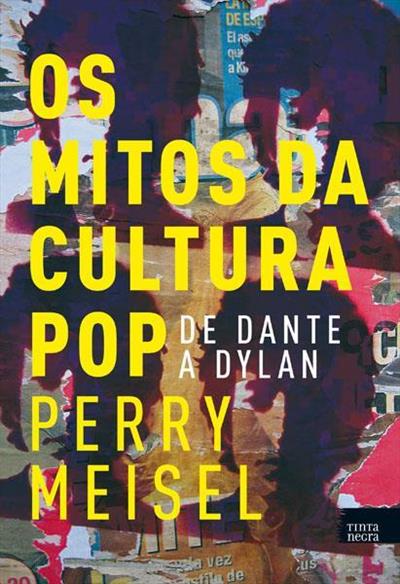Soul-shucking was the hippie's answer to less subtle forms of American racism: "Tell it like it is, bro - play the blues." That was in the '60s, of course, when overcompensation was the dominant mode of our attack on the American legacy. That we stumbled on a racism of our own was the inevitable result, though it was a racism far more latent and theoretical than the kind we had inherited.
One by-product of the new perspective was the myth that the blues was the most expressive of all forms, an imitatio of black life that whites were forbidden - by an aesthetic assumption - from practicing. By now, though, it should be plainer that the blues is also a grammar that can be learned like other grammars, and that the degree of skill and feeling (competence, to use Chomsky's term) with which it is played is a product of nurture rather than nature. Such a perspective should demythologize our notion of "soul," free it from genetic implications. But it still allows the plain facts of history to speak for themselves.
Albert King plays the blues better than John Mayall for the same reason that I can eat a cheeseburger with more finesse than a Dutchman. Cultural usage - how well, and under what circumstances, the grammar is learned - is the determining factor. Like his counterparts in Britain, Mayall came to the blues later in life, and under far different conditions, than black (or white) Americans who had been raised with it. Albert's records probably didn't even reach Britain until 1962, when the young Clapton doubtless copped The Big Blues and heard those scarlet metal riffs for the first time.
The rest is history, which spoke again last week when both King and Mayall came to New York in separate appearances at the Bottom Line. There may be a little extra bump wired into Albert's sound today (the horns are too bright and occasional strings and singers intrude on the new Utopia LP, Albert), though this minor production gambit little distorts what is essential and enduring in his music. Most of the album reflects his live performances (the bump tunes simply sandwich lots of blues), and his performance at the Bottom Line reflected the immemorial King of tears and power. Albert commanded shuffles and funk alike with the same preening articulation (formal blues rhetoric programmatically demolishes the usual distinctions between swinging and rocking), awakening by evening's end the inevitable contrasts and comparisons to B.B.
Albert's guitar, after all, is patently distinct from his namesake's - more acrid, but also more legato; less precise, but also less pointed. Albert's more determining influence on younger metal bluesmen is apparent, too, particularly in his heavier touch and thicker tone. B.B.'s Gibson has more wood in it than twang, as though it vibrates with nature in some resonant harmony alien to Albert's darker cast of mind. Especially graphic are their divergent styles of phrasing: B.B. plays and sings in easy relation to space and silence while Albert floods potential gaps with pools of thought or punctures them with the famous riff (DI-dah!) that has come to be known as "the Albert King tribute."
Mayall, on the other hand, is one of the worst harmonica players to appear more than once on a major stage (quite an achievement, considering the state of the art), and his singing may be judged successful whenever he is in tune. And yet Mayall occupies a position in the history of the blues as significant as Albert's, though in a far different way. Mayall's stature proceeds solely from his gifts as a bandleader. He has, for years, assembled fine musicians from diverse backgrounds, stretching and contracting the stylistic capacities of his ensemble over the unifying coordinates of formal blues. So we find one man fronting, for example, both Clapton and Blue Mitchell within a period of less than 10 years, hence mediating, too, some startling relation between Horace Silver and Jimmy Page.
When the knack fails him, though, Mayall is left with very little indeed. His new group showed off a strong rhythm section at the Bottom Line, but his soloists were probably the weakest he has ever fronted. You look to horns and guitar in a Mayall band - the old list runs from good to formidable - but not with this sorry lot. Guitarist Gary Role insists on the high end of his Telecaster to grating extremes while veteran tenorman Red Holloway (horns are down to one in the present combination) seems to care less and less about the sweet soul sound he once played with tolerable confidence.
By contrast, Mayall's new LP (A Banquet in Blues) is a reasonable one, compiled from a series of dates with (some) band members recently departed from the group. The eight cuts are mostly movers, three with Roy McCurdy as fiery on the drums as he was for years with Cannonball Adderley, while Mayall's vocals are more interesting than usual, too, because so many of the new tunes are fully conceived songs rather than 12-bar jammers.
I've always had the feeling, too, that Mayall's apparent romance with black musicians in the years since the Bluesbreakers could be read in two ways. It is either the usual European mythification of black culture with all its attendant mysticism of the flesh or it is simply proof that the gap between British blues and American is slowly closing. Let us be charitable and assume that it is the latter.
Originally published in The Village Voice, October 11, 1976
Sample view:





